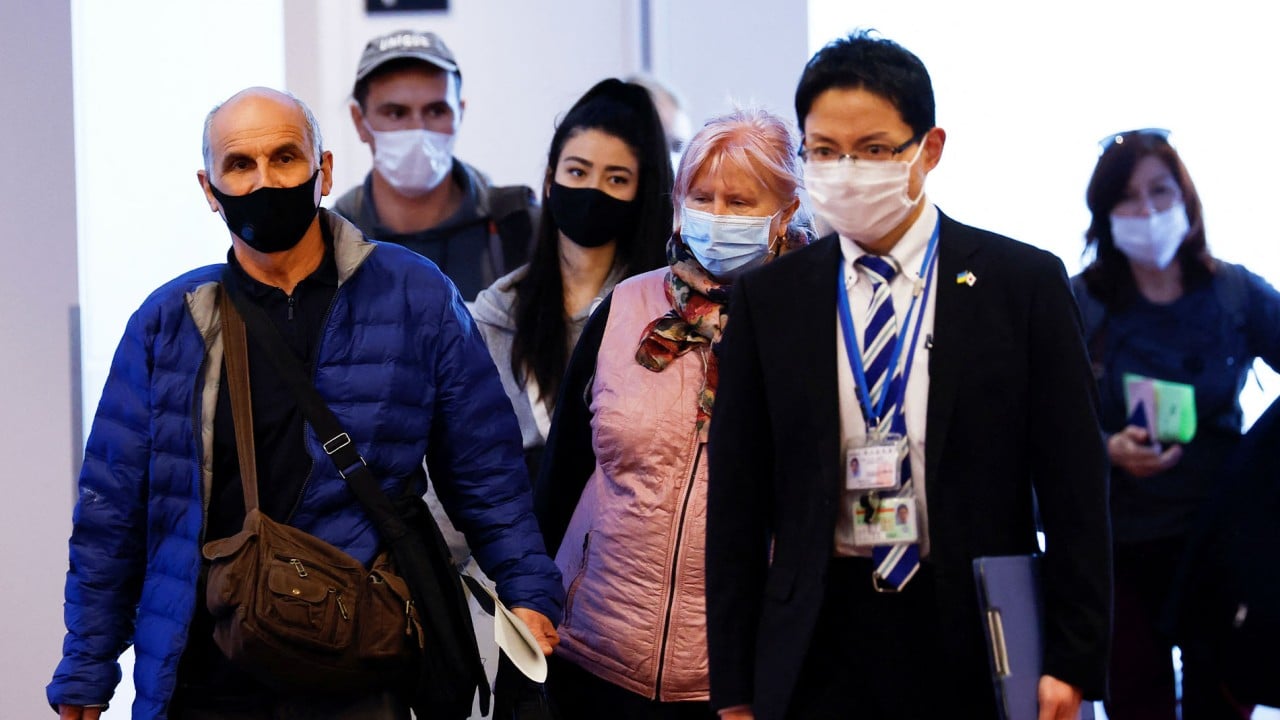
Japan unveils first-ever guidelines on refugee status recognition amid global criticism
- The guide for immigration officials outlines fear of persecution cases such as sexual minorities who are targeted or women who could face genital mutilation
- In 2021, Japan gave refugee status to 74 people, far fewer than in European countries and the US, where more than 10,000 refugees are taken in annually
Japan on Friday unveiled its guidelines on refugee recognition for the first time after growing calls at home and abroad for greater transparency and amid mounting criticism over its history of accepting far fewer refugees compared to Western countries.
Among the notable cases cited in the handbook for immigration officials is the possibility of granting refugee status if applicants are deemed at risk of persecution at home for identifying as a sexual minority.
The handbook, compiled by the Immigration Services Agency of Japan, however, “does not expand the scope of recognition” already in use by immigration authorities and is also not meant to “increase the number of people granted refugee status”, Justice Minister Ken Saito told a press conference.
But he said he expects that the enunciation of the agency guidelines will see applications get organised more appropriately. “It is possible that there will be an increase in cases of swiftly granting refugee status,” Saito said.
In 2021, Japan gave refugee status to 74 people, a record high since it started granting such status in 1982. But the number is far fewer than in European countries and the United States, where over 10,000 refugees are taken in annually.
Japan drops plans to fast-track deportations after Sri Lankan’s death
The handbook, to be used to decide whether refugee status criteria are met, was compiled based on precedents and court judgments as well as documents by the Office of the UN High Commissioner for Refugees and guidelines in other countries.
The 1951 Refugee Convention, to which Japan is a signatory, defines a refugee as “someone who is unable or unwilling to return to their country of origin owing to a well-founded fear of being persecuted for reasons of race, religion, nationality, membership of a particular social group, or political opinion” and obliges member states to give them protection.
The handbook, which could be updated depending on new situations surrounding potential refugees, cites the possibility of recognising fear of persecution in cases where sexual minorities are targeted with punishment or when women could face genital mutilation in their home countries due to local customs.
It also says that even if a single factor detrimental to an asylum seeker does not amount to fear of persecution at home, they could still be eligible for refugee status if multiple disadvantageous situations are taken into account.
Fear of persecution needs to be not an abstract danger but a “realistic one”, the handbook says. But it also notes that fear of persecution cannot be denied just because the asylum seeker is not individually identified by those who would persecute them.
The Japan Lawyers Network for Refugees cast doubt over the effectiveness of the new handbook, saying, “There is no guarantee that the number of refugee recognition and protection will increase”, as the agency has only compiled the document to help “better understand” the country’s refugee recognition system.
“We cannot help but think that Japan’s extremely low refugee recognition rate will not change going forward,” the group said in a statement.
The group reiterated its call for refugee recognition to be conducted by an independent organisation and for easing the heavy burden on applicants to prove their need to be recognised as refugees.
The agency compiled the guidelines after an expert panel within the Justice Ministry in December 2014 proposed enhancing the transparency and credibility of its refugee recognition process.
The agency also took into account the UNHCR’s view on the issue.


